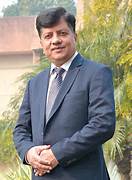Missile Man’s Timeless Wisdom on Harnessing True Power, Scientific Leadership, and Time Management Continues to Inspire Generations of Indian Scientists
Published on: September 11, 2025
By: BTNI
Location: New Delhi, India
In a heartfelt reflection on his illustrious career, former Director General of the Defence Research and Development Organisation (DRDO) Sudhir K Mishra has opened up about the transformative life lessons he imbibed from his mentor, the legendary Dr APJ Abdul Kalam. Known as India’s “Missile Man,” Kalam not only guided Mishra through pivotal moments in missile technology but also instilled principles of empowerment, resilience, and ethical leadership that shaped Mishra’s journey and continue to influence aspiring scientists.
Mishra, who served as DRDO DG and later as CEO & MD of BrahMos Aerospace, recounted a defining interaction during a quiet dinner with Kalam that sparked the development of the Akash missile system—one of India’s most strategic surface-to-air defenses. Troubled by a persistent question on power dynamics in scientific projects, Mishra posed it to Kalam, who responded with his signature philosophy: “Power is not about control; it’s about empowering others to achieve greatness.” This insight, which Mishra interprets as “Power To Empower,” became the cornerstone of the Integrated Guided Missile Development Programme (IGMDP), launched under Kalam’s leadership in the 1980s. The Akash missile, born from this ethos, has since proven its mettle in real-world scenarios, including recent conflicts where it neutralized adversarial threats with precision.
Drawing from years of close collaboration starting in 1984 at the Defence Research and Development Laboratory (DRDL) in Hyderabad, Mishra highlighted Kalam’s emphasis on scientific leadership. “Kalam taught us that true leadership in science isn’t about commanding from afar but about fostering collaboration and innovation among teams,” Mishra shared. Under Kalam’s guidance, Mishra contributed to landmark projects like the Agni missile, learning to navigate complex international partnerships with Russia, Israel, and France. Kalam’s hands-on approach—coordinating multiple institutions and building indigenous capabilities—transformed India’s defense landscape, making self-reliance a reality.
Time management emerged as another key lesson Mishra cherished. Kalam, despite his demanding schedule as Scientific Adviser to the Defence Minister and later President, exemplified disciplined productivity. “He divided his day meticulously: mornings for creative thinking, afternoons for meetings, and evenings for reflection and reading,” Mishra recalled. This regimen allowed Kalam to balance groundbreaking research with mentoring young engineers, inspiring Mishra to adopt similar habits that propelled his own career from a mechanical engineering graduate to a top missile scientist.
Also read- https://www.btnewsindia.com/rahul-gandhigo-backslogan-sounded-in-rai-bareli/ https://www.btnewsindia.com/free-health-camp-for-serious-diseases-on-september-17-in-rajnandgaon/
Mishra credited this discipline for enabling feats like upgrading BrahMos to hypersonic speeds, a vision Kalam championed just weeks before his passing in 2015.Kalam’s influence extended beyond technical expertise to personal growth. Mishra spoke of how the former President encouraged viewing failures as stepping stones, a principle Kalam lived through setbacks like the 1979 SLV-III launch failure at ISRO.
“Dream big, work hard, and remain humble—these were his mantras,” Mishra said, echoing Kalam’s famous advice to students: “Failure will never overtake me if my determination to succeed is strong enough.” This resilience not only helped Mishra overcome project hurdles but also motivated a generation of scientists to pursue audacious goals, from satellite launches to hypersonic weapons.
Even in retirement, Kalam’s legacy endures through tributes like the naming of BrahMos-II after him, as announced by Mishra in 2015. The hypersonic missile, capable of speeds exceeding Mach 7, symbolizes Kalam’s vision for India’s technological supremacy. Mishra, now reflecting on these lessons in interviews and public forums, urges current DRDO teams to embody Kalam’s spirit of empowerment amid ongoing challenges like indigenization and timely defense deliveries.
As India advances its defense capabilities, Mishra’s recollections serve as a powerful reminder of Kalam’s enduring impact. From the birth of Akash to the horizon of hypersonic innovation, the “Missile Man’s” wisdom—centered on empowering others, leading with integrity, and managing time wisely—remains a guiding light for scientists striving to build a stronger nation.




